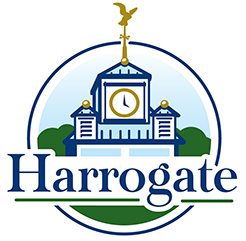Importance of eating well as you age
Well-Being Includes Eating Well
A MacArthur Foundation Study found that 70% of how we age is determined by our lifestyle. And because we all need to eat, eating healthy can make a big difference in your overall well-being. This blog will show you how to build a healthy menu, as well as which foods are packed with vital nutrients, like antioxidants, that could be key to living longer.
Tips for Picking Healthy Foods as You Get Older
The National Council on Aging (NCOA) offers these ideas to help you find the best foods for your body and your budget.
A healthy meal should include:
- Lean protein (lean meats, seafood, eggs, beans)
- Fruits and vegetables (think orange, red, green and purple)
- Whole grains (brown rice, whole wheat pasta)
- Low-fat dairy (milk and its alternatives)

Remember to choose foods that are high in fiber and low in sodium or salt. Also, look for foods high in Vitamin D like salmon, canned tuna, egg yolks, fortified dairy products and more.
Read the nutrition facts label: The healthiest foods are whole foods. These are often found on the perimeter of the grocery store in the produce, meat, and dairy sections. For packaged foods, read the labels to find items that are lower in fat, added sugars and sodium.
Use recommended servings: The American Heart Association provides recommended daily servings for adults age 60+.
Stay hydrated: Drink small amounts of fluids throughout the day. Tea, coffee, and water are the best choices. Keep fluids with sugar and salt to a minimum.
The ABCs of Superfoods for Seniors
A number of foods rich in antioxidants, vitamins and other minerals are considered to be beneficial to health and well-being. Called superfoods, they’re an important part of senior nutrition. Some appear vital to living a longer, healthier life and have anti-aging properties. There are even brain foods that could promote brain health.
Apples

The soluble fiber in apples may help lower cholesterol and maintain healthy blood sugar levels by slowing the uptake of glucose. They’re also a source of potassium, which helps lower blood pressure, and antioxidants like vitamin C. Apples may lower your risk of cancer, heart disease and asthma, while aiding lung function and weight loss.
Asparagus: The lycopene in asparagus has been found to protect the prostate and help reduce the risk of prostate cancer. Asparagus contains protein and iron along with vitamin A — which is important for the immune system and eye health. It has lots of fiber to help reduce cholesterol, control body weight, and encourage heart health. Asparagus also contains prebiotics, which promote healthy gut bacteria.
Blueberries

High in soluble fiber, blueberries can help lower cholesterol and slow glucose uptake, helping you maintain healthy blood sugar levels. Blueberries contain vitamins C and K, as well as antioxidants and manganese. They also appear to lower blood pressure and may promote brain health, aid memory and fight against age-related cognitive decline.
Broccoli: Antioxidants and vitamins such as A, C, B9 (folate) and K can help your eyes, red blood cells, immune system, bones and tissues, and are all found in broccoli. Broccoli may also aid in the fight against certain cancers, including liver, breast, prostate and colon cancers.
Butternut Squash

The beta-carotene in butternut squash is important for eye health, and its vitamin C also benefits the heart. It has a high fiber content, which helps lower cholesterol and maintain good blood sugar levels. Butternut squash also boasts a healthy amount of potassium to help control blood pressure.
Coffee: The National Institutes of Health-AARP Diet and Health Study found that coffee drinkers (regular or decaf) were less likely to die from heart and respiratory diseases, stroke, injuries and accidents, diabetes and infections. Coffee may also help protect women from breast cancer and also protect against other cancers. Other research has found that those who drank two cups or less of coffee a day in their 40s and 50s had a 65% lower rate of developing Alzheimer’s than those who drank more than two cups a day.
Dark Chocolate

Some studies indicate that regularly consuming small amounts of dark (at least 70% cacao) chocolate can lower blood pressure and decrease the rate of stroke in women by 20%. Dark chocolate may also protect brain health and boost memory. Antioxidants, including polyphenols like flavonoids, may help prevent heart attacks by protecting arteries from becoming clogged.
Eggs: The yolk contains nutrients that lower your risk of cataracts and age-related eye degeneration.
Fava Beans: Low-fat, no-cholesterol fava beans have plenty of fiber and B vitamins, including folate, thiamin and riboflavin. They’re also rich in nutrients like manganese, iron and potassium.
Garlic

Helps prevent heart disease and strokes by slowing the hardening of the arteries. The herb may also help fight inflammation and cartilage damage associated with arthritis.
Greek Yogurt: A serving of low-fat or nonfat Greek yogurt may have twice the protein and half the sugar of its non-Greek counterpart. It also has more digestive-friendly probiotics than American-style yogurt.
Green Kale: Contains important omega-3 fatty acids and vitamin K, which promotes blood clotting to stop bleeding, but be cautious with kale if you take a blood thinner. High in fiber and a rich source of calcium for bone health, it also provides lutein, which is important for eye health. Kale may help slow cognitive decline, protect your arteries and lower cholesterol.
Milk: The protein and calcium in milk help counteract bone and muscle loss.
Mixed Nuts

In one study, regular nut intake was connected with a lower risk of dying from cancer, heart disease and respiratory disease.
Oatmeal: A compound in oatmeal helps scrub the arteries and may protect against colon cancer. Oatmeal is low-fat, high in protein and loaded with iron and other minerals.
Olive Oil: The monounsaturated fat in olive oil helps lower cholesterol levels, thus decreasing the risk of heart disease. It may also help prevent diabetes by regulating insulin levels and improving blood sugar control. Olive oil also contains vitamin K, which aids blood clotting, and vitamin E, an antioxidant important in the creation of red blood cells.
It appears to reduce arthritis inflammation as well.
Pomegranates

The nutrient punicalagin in pomegranates might help fight against the breakdown of collagen, helping to preserve joint health. A half cup of pomegranate seeds contains 15% of the daily recommended allowance of vitamin C, an antioxidant that may fend off skin damage and premature aging.
Tomatoes: Lycopene, the pigment that gives tomatoes their rich red color, may ward off UV-induced damage like wrinkles. In fact, studies show that our bodies absorb lycopene more easily from tomato paste than from fresh tomatoes.
Turmeric

A main spice in curry, turmeric contains curcumin. Early research shows that curcumin may bind with the plaque that can build up in the brains of Alzheimer’s patients to prevent the disease from developing.
Quinoa: The South American grain quinoa is a complete protein, filled with antioxidants, vitamins and minerals such as B2, magnesium, copper, iron and phosphorus. It is one of the healthiest and most nutritious foods to eat.
Salmon: High in omega-3 fatty acids, salmon can reduce the risk of heart attack and irregular heartbeats. Salmon can also help lower blood pressure and build brain cell membranes.
Strawberries: The flavonoids — healthy chemicals that give fruits and vegetables their vivid color — contain antioxidants that could keep your heart young.
Our Chef Joe Serves up a Healthier Lifestyle
For Joe Alonzo, Harrogate’s executive chef/director of dining services, providing a healthy diet is more than his job. It’s his way of life. “Four years ago, I had a sudden cardiac arrest. I died for eight minutes and was in a coma for three days. Plus, my middle daughter is diabetic. So I try to use my situation to talk with residents about the importance of eating healthier.”
Chef Joe, as the residents call him, believes eating better is integral to a happier, healthier lifestyle. “On BBQ Wednesday, we’ll give residents an option with less fat, like a veggie burger, salmon burger or turkey burger. In fact, we always have a well-balanced option on our menu.
“We make our own stocks and bases, so residents aren’t getting extra sodium,” Joe says. “Our mozzarella and gnocchi are homemade. We use fresh herbs whenever possible. On our salad bar, we have a spring mix and fresh spinach along with healthy carbs — beans and fresh carrots. Sprouted seven-grain bread is always available too. I can make things healthier without residents even tasting the difference.”
Harrogate’s food philosophy includes buying local produce, or as Chef Joe calls it, Jersey Fresh. “I recently started a Farm to Fork club where we visit area farms. As a part of our club, we started an herb and vegetable garden. Eventually we should be able to harvest six months out of the year. You can’t get any fresher than out of your own garden.”
Enhancing the Quality of Life
At Harrogate, Leslie Schwartz, our onsite Registered Dietitian works with all of our residents in focusing on achieving their positive nutritional goals. She is proactively available for individual as well as group consultation to meet and coach on healthy food choices. In addition, Leslie works with our Dining Services team to promote optimal nutrition for all health ranges from Independent Living to Skilled Nursing.
Leslie has several tips that she recommends that are simple tips to healthy eating:
- Make sure you don’t skip meals. Even if you have small meals throughout the day, frequent eating will maintain energy levels and ensure you’re getting the nutrition and sustenance you need.
- Moderation is the key. Food can be both enjoyable and healthy. All food can fit into a healthy diet, but it’s important to balance higher calorie, less nutrient dense foods with others that are more nutrient-rich.
- Stay hydrated. Water and other fluids keep the body running efficiently. Drink beverages with each meal and a couple glasses of water in between meals.
- Eat the colors of the rainbow. Eating varied foods can ensure your diet has variety and is nutrient-rich.
- Try something new. You may like it and it could have nutrients you aren’t getting from other foods.
You May Also Like

Understanding the Value of a Life Plan Community

Downsizing Guide for Seniors: Embrace a Simplified Lifestyle at Harrogate

Embrace the Benefits: Why Moving into Independent Living Sooner Makes Sense

The Top Retirement Wellness Trends

So Much To Learn. Come Join Us.
The best way to get to know us is to join us for an event. From social gatherings to educational courses to informative resident panel events, there’s always something new to discover about life at Harrogate.
Contact Us
"*" indicates required fields






